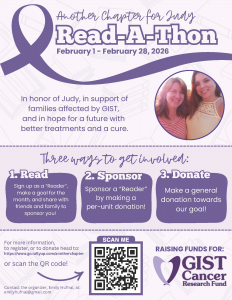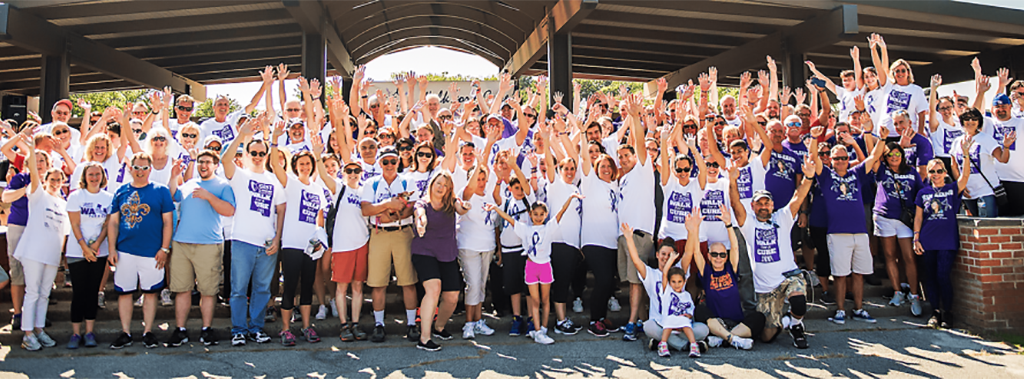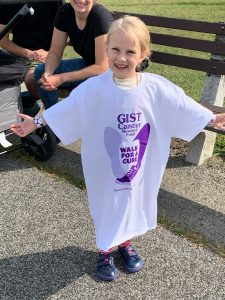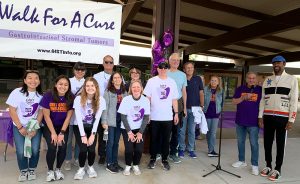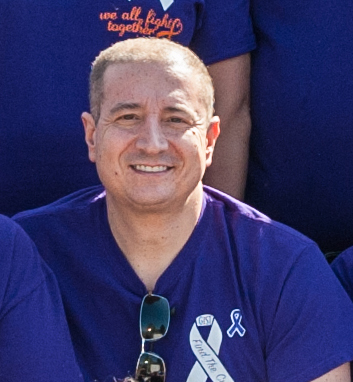WALK FOR A CURE
SAVE THE DATE
The New York Walk For A Cure
Sunday, September 27, 2026
TEAM TURANO 8TH ANNUAL
GCRF FUNDRAISER
September 25, 2026
Hanover Manor in East Hanover, NJ
The Turano Family and Friends continue to raise funds for GIST Cancer Research and their tireless efforts have raised more than $100,000 for GIST Cancer Research. Why? Because the Turano Family takes fundraising for the GIST Cancer Research Fund as a personal quest.
Their slogan is: " Not just a Team, We are a Family!"
The top GIST Cancer doctors and researchers from all over the USA
attend the Walk For A Cure. With GCRF's guest spokesperson, Walt Frazier:
Ronald P. DeMatteo, MD, FACS • Perelman Center for Advanced Medicine
Michael C. Heinrich M.D. • Oregon Health Sciences University
Margaret von Mehren, MD • Fox Chase Cancer Center
Ping Chi, MD, PhD • Memorial Sloan Kettering Cancer Center (MSK)
Cristina R. Antonescu, MD • Memorial Sloan Kettering Cancer Center (MSK)
Dr. Jonathan A. Fletcher, MD • Harvard Medical School,
Brigham and Women’s Hospital,
and Dana-Farber Cancer Institute
Jonathan C Trent II, MD, PhD • University of Miami Health System
Before Covid, the attendance for the walks was between 500-600 patients and caregivers. After Covid, attendance has dropped dramatically between 250-300 people. Please donate and help us to continue the great strides that have been made to find a cure.
IN LOVING MEMORY
Angelo Turano • October 22, 1971 - April 25, 2025
With heavy hearts, we say goodbye to a dear friend and member of the GCRF family, Angelo Turano. Quoting his obituary, "Angelo had a remarkable gift for making everyone around him feel truly special. He loved his family and friends with his whole heart, cherishing every moment spent with them. Always generous and kind, he was the first to lend a hand to anyone in need." While battling GIST cancer for many years, Angelo was a member of the GCRF Board of Directors and never missed an opportunity to attend the GCRF Walk For A Cure or promote GCRF. He and "Team Turano" which included his wife Karen and children, Angelica and Angelo Jr. raised over $150,000 for research with their annual fundraiser. Even though he endured countless surgeries, Angelo's positive attitude was always shining as a true warrior against this horrible cancer and an inspiration to everyone around him.
We will miss you Angelo but we know that you are smiling down on all of us. Our deepest sympathies to Karen, Angelica and Angelo Jr. and the entire Turano family. May you rest in peace!
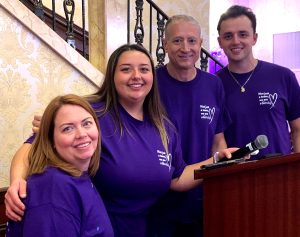
TANIA STUTMAN, RECIPIENT OF THE JAMES EWING LAYPERSON'S AWARD
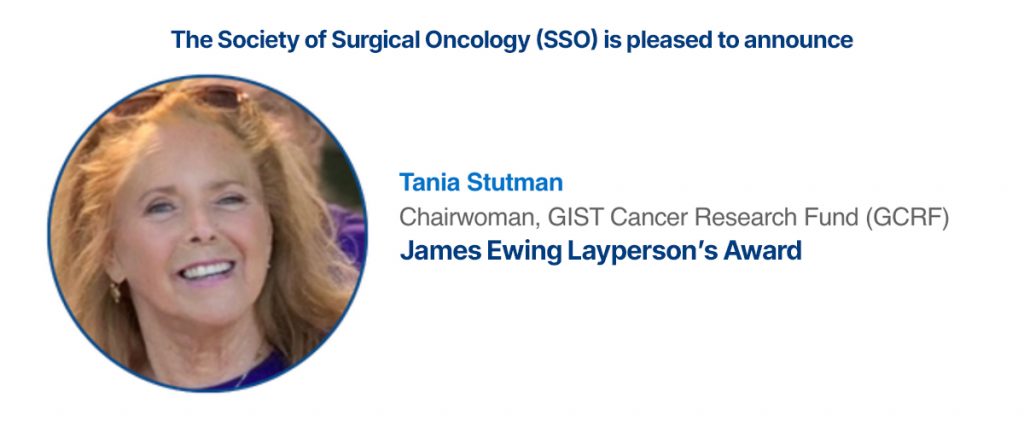
GCRF is proud to announce that our own Tania Stutman, Founder and Chairperson of the GIST Cancer Research Fund, has been awarded the James Ewing Layperson's Award by the Society of Surgical Oncology (SSO). The James Ewing Layperson’s Award recognizes a non-physician who has contributed to cancer research, education, or advances in treatment through philanthropy, public education, or by personal example. For 24 years, Tania has dedicated her life to finding a cure for GIST Cancer. While she is a GIST patient herself, she has persevered through personal tragedies and health issues and never once has given up her goal of spreading awareness and finding a cure. She is a true warrior and we are so proud of her and congratulate her on this well-deserved honor. Click here to view the list of the past prestigious recipients of the James Ewing Layperson's Award.
Immune and Molecular Therapy of Gastrointestinal Stromal Tumor/ DeMatteo Lab 2025

Ronald P. DeMatteo MD
Gastrointestinal stromal tumors are the most common human sarcoma and are largely driven by activating mutations in KIT or PDGFRA genes. While tyrosine kinase inhibitors (TKIs) like imatinib have revolutionized therapy for GIST, 10-20% of patients present with GISTs that are resistant to TKI therapy. Furthermore, TKIs are rarely curative, and the majority of patients with certain high-risk tumors have disease recurrence within 5 years. Therefore, the development of improved and novel therapies remains essential. Our lab focuses on immune and molecular combination therapies that aim to augment the efficacy of these tyrosine kinase inhibitors.
We have recently developed the first patient-derived xenograft of PDGFRA D842V-mutant GIST, the most common PDGFRA mutation that is also resistant to
imatinib and most other TKIs.
Ping Chi MD, PhD, MSKCC, RESEARCH BEING DONE USING GCRF FUNDS 2025-26

Ping Chi MD, PhD
Memorial Sloan Kettering Cancer Center
The overarching goals are to understand GIST development and pathogenesis. We aim to build models that accurately represent how GISTs behave in the body, and develop new drugs with the potential to cure the disease. The lab is currently exploring the roles of two crucial proteins, FOXF1 and ETV1, that are vital for the survival of certain cancer cells in GISTs, and its research encompasses several innovative projects aimed at improving treatment outcomes. One of the Chi Lab’s primary focuses is targeting ETV1 using a combination of two drugs: a KIT inhibitor and a MEK inhibitor (MEKi). This approach is currently being tested in a clinical trial for patients with advanced GIST. Additionally, the lab is investigating whether combining a MEKi with imatinib, the standard treatment for metastatic GISTs, can enhance outcomes as a first-line therapy. This study, conducted as a randomized phase 2 multicenter clinical trial, could hold the potential to revolutionize global care for these patients. The lab is also working on developing new drugs that can target FOXF1, which regulates both KIT and ETV1 genes, making it a favorable target for improving GIST survival rates. Understanding the GIST ecosystem — how the body’s normal cells, molecules, and blood vessels contribute to the cancer’s survival, metastasis, and drug resistance — is another critical area of research. By gaining insights into these factors, the Chi Lab hopes to create new treatments and develop a comprehensive model of GISTs, particularly focusing on how the cancer spreads to the liver.
Antonescu Research Lab: Proposal for 2025-2026 Funding

Cristina R. Antonescu, MD, Memorial Sloan Kettering Cancer Center
As a result of the generous GCRF funding, we were able in the past year to make significant progress on defining the genomic landscape and biomarkers to better assess risk of malignancy in GIST.
This study was triggered by the many existing limitations of the current risk stratification schemes in GIST. To mention a few, the conventional guidelines for risk assessment were defined in the pre-imatinib era and rely solely on clinicopathologic metrics: tumor site, tumor size, and mitotic activity. These risk models have performed inconsistently in differentiating potentially aggressive from indolent clinical behavior, offering limited guidance on adjuvant therapy. Additional significant limitations of the current prognostication include the lack of integrated molecular biomarkers and not accounting for the imatinib sensitivity of the primary GIST genotype.
In this project we specifically investigate means of extracting additional information from large-scale genomic landscape signatures, focusing on selecting and validating prognostic biomarkers of tumor progression. By applying a targeted hybrid capturebased next-generation sequencing assay to determine the mutational and copy-number landscape in a large GIST cohort with comprehensive and detailed clinicopathologic annotation from a single tertiary center, we were able to identify molecular determinants of aggressive clinical behaviors that can be used as the next-generation, genomic based risk prediction in GIST in the present imatinib era.
Download the entire report by clicking the button below.
GIST CANCER RESEARCH AT FOX CHASE CANCER CENTER 2025
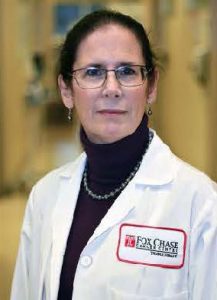
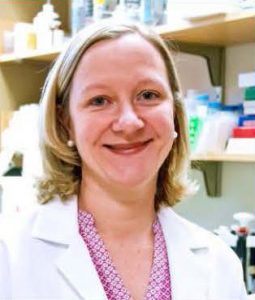
The primary goal of Dr. von Mehren’s work is the testing and evaluation of new therapies for soft tissue sarcomas. Each year, approximately 7,000 new cases of are diagnosed in the U.S., with only about 50 percent of patients surviving their disease. For those whose sarcoma recurs, the limitations of current treatments lead to even lower survival rates. Dr. von Mehren has a particular interest in developing novel therapies for GIST, the most common sarcoma of the intestinal tract. GIST is characterized by the presence of a growth factor called KIT on the surface of tumor cells. In most cases, mutations in the KIT gene – and in rarer cases, in PDGFRA, BRAF, or SDH – activate the protein, driving tumor cells to continuously grow and divide.
Dr. von Mehren and the GIST laboratory have long focused on understanding and treating tumors that do not respond well to standard targeted therapies. These include subset of GIST without activating mutations (SDH deficient, NF-1 mutated or quadruple negative GIST), as well as tumors that have developed resistance to approved treatments.
Tania’s Story and the Formation of the GIST Cancer Research Fund
“I started with just a little website,” Tania says. “I went on local radio. I went to our local paper and told them my story.” In 2001, she held her first walkathon and raised $23,000. In 2018, the foundation has raised more than $10 million dollars and every penny has gone to GIST Cancer Research.
GCRF Proclamation
United States Senator, Charles “Chuck” Schumer graciously acknowledged the GIST Cancer Research Fund with a proclamation for the importance of the numerous contributions that the GIST Cancer Research Fund and the Walk For A Cure has made to find a cure for GIST Cancer.

GCRF'S Enduring Commitment: Thanks
A note from one of our GIST Cancer patients:
As someone who has been on the “GIST train” for 15.5 years, I have been a witness to all you have done working hard all year, every year, for those of us with this orphan disease. It is because of you that we all were able to funnel our resources to help develop the many drugs now available and the hope that comes with that research .
You have suffered your own losses and deal your own health issues besides GIST and yet have continued to fight for us all.
I can’t express how thankful I am for your generosity of spirit and your enduring commitment.
I have such respect for you both and always will.
Love,
Lynn Whelan
A Generous Donation From the Heart

The donation to the GIST Cancer Research Fund was for $10.00. This was one of the most generous donations that we have received because it was from the heart. Please remember this when you give to GCRF. Every dollar counts to find a cure!
A Message of Hope
GCRF received a special letter from the spouse of a GIST Cancer patient giving us all hope.
Everything You Need To Know About GIST Cancer • Cancer.net
The best cancer care starts with the best cancer information. With nearly 50,000 members in 170 countries who are leaders in advancing cancer care, the American Society of Clinical Oncology (ASCO) is the voice of the world’s cancer physicians. ASCO’s patient information website Cancer.Net brings the expertise and resources of ASCO to people living with cancer and those who care for and care about them. This website provides a wealth of information on gastrointestinal stromal tumor (GIST) cancer. Click the button below for more information on this GIST Cancer website.

Cogent Biosciences has announced positive top-line results

Dear GIST Community,
We are pleased to share that Cogent Biosciences has announced positive top-line results from the Global Phase 3 PEAK study for adults living with Advanced, Unresectable or Metastatic GIST. The PEAK study was designed to evaluate the efficacy and safety of CGT9486, also known as bezuclastinib, an investigational candidate for the treatment of second-line GIST, in combination with sunitinib.
“It is a historic day for Cogent Biosciences and the GIST patient community,” said Andrew Robbins, Cogent’s President and Chief Executive Officer. “We are extremely excited to announce positive results from the Phase 3 PEAK trial of bezuclastinib plus sunitinib, which have far surpassed our expectations for the activity of this combination in patients with imatinib-resistant or intolerant GIST. With these incredible results, including a greater than seven-month improvement on mPFS – reducing the rate of progression or death by half – the bezuclastinib combination is poised to become the new standard of care for treatment of second-line GIST patients. We are pleased to have an existing Expanded Access Program available to GIST patients who have an urgency to access this novel treatment immediately and look forward to partnering with regulatory agencies to make this combination broadly available to patients as soon as possible.”
Download pdf below for full press release.
GIST Cancer Research Fund Proposal for 2025-2026
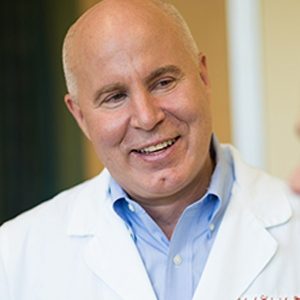 Michael Heinrich, M.D.
Michael Heinrich, M.D.
Understanding mechanisms of resistance
Recently, two new drugs (avapritinib, ripretinib) have become approved for treatment of advanced GIST. These drugs provide new therapy options, but already we have seen clinical resistance to these new drugs. In order to continue to improve treatments, we need to understand the ways by which GIST cells can overcome these new “wonder drugs”. We have established new technologies and cell lines to determine the mechanisms of resistance to these agents. Using our improved technologies, we can “fast forward” our experiments to more rapidly discover new resistance mutations. We will study resistance mechanisms to new drugs that are being tested in clinical studies in 2024-2025: IDRX42, NB003. We have already completed pilot experiments with ripretinib, avapritinib, IDRX42, and NB003. In addition, we have identified a new drug, SB21-01, which may overcome certain resistance mutations which other drugs cannot inhibit.
Developing strategies to optimize the treatment of PDGFRA-mutant GIST
Avapritinib is a recently approved drug for treatment of GIST with PDGFRA exon 18 mutations, particularly the imatinib-resistant PDGFRA D842V mutation. It is widely believed that all PDGFRA exon 18 mutant GIST are resistant to imatinib but have developed evidence that this is not true. We are developing cell lines and prediction models that will help clinicians chose between imatinib and avapritinib for initial treatment of advanced GIST with PDGFRA exon 18 mutations. In addition, we are developing models and strategies to overcome avapritinib resistance as currently there is no effective therapy.
Analysis of Succinate Dehydrogenase (SDH) Subunit Mutations in a human cell model
Mutation of various SDH subunits is seen in some cases of wild-type GIST, especially GIST arising in children or younger adults. These mutations can be sporadic or inherited as part of the Carney-Stratakis Syndrome. Recently, we have developed the first human cell lines that are deficient in SDHA, the most common type of mutation in SDH-deficient GIST. We are using these cell lines to assist in the diagnosis and genetic counseling of patients with potential inherited forms of GIST. In the past year we have been able to profile > 70 SDHA mutations. In addition, we will use these cell lines to screen for novel treatments for SDH-deficient GIST. In collaboration with UCSD, we discovered that SDH-deficient cells are uniquely sensitive to an existing mild oral chemotherapy agent (temozolomide). As part of a consortium, we recently completed a phase 2 study of temozolomide for treatment of SDH-deficient GIST. We will continue to develop our cell line bank and study new therapeutic approaches We are now testing the efficacy of the combination of temozolomide and a DR5 agonist antibody (INBRX-109) for treatment of patients with advanced/metastatic SDH-deficient GIST. Using our pilot data, we have recently obtained NCI U01 Federal funding as part of a consortium to further study SDH-deficient GIST. In addition, we have developed a new higher throughput model to characterize SDHA and SDHB mutations.
We will provide and update on the above studies at the October 2025, GCRF patient event at OHSU.
2025 GIST Education Conference and Luncheon, OHSU Knight Cancer Institute
2025 GIST Educational Conference
The OHSU Knight Cancer Institute and the GIST Cancer Research Fund held a one-day educational conference highlighting advancements in Gastrointestinal Stromal Tumors (GIST) research on October 16, 2025. Dr. Michael Heinrich and Dr. Brian Drucker were among the speakers presenting the strides that are being made in GIST Cancer research. Tania and Robert Stutman, GCRF, also attended and received a plaque in appreciation of the $2 million dollars given to lab of Dr. Michael Heinrich and Dr. Chris Corless at the Oregon Health & Science Center/Knight Cancer Institute.

For anyone who could not attend the 2025 OHSU GCRF Educational Conference or would like to review this valuable information, you can now watch the speaker presentations here. Thank you again to the GCRF for your extraordinary effort to fund GIST research! Without your support, we wouldn't be able to continue this vital work.
Let's find a cure for GIST!
Welcome to the Heinrich-Corless Research Lab
A look behind the scenes in the lab of Dr. Michael Heinrich at the Oregon Health & Science Center/Knight Cancer Institute. Here is an overview of the current research being performed to find a cure for GIST Cancer.
“Thank you to Tania, Robert and everyone with the GIST Cancer Research Fund for your loyal support of the OHSU Knight Cancer Institute in our mission to end cancer as we know it. I am inspired and humbled by your commitment to us. Thank you again.”

Brian Druker, M.D., Director, OHSU Knight Cancer Institute
DR. JON TRENT'S 2025 RESEARCH UPDATE
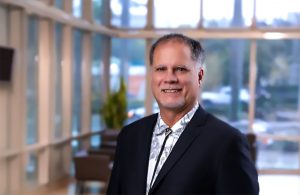
Looking For A GIST Cancer Doctor?
 GIST is a rare form of cancer that most doctors misdiagnose or are not familiar with the appropriate treatment. If you or a loved-one is diagnosed with GIST, getting in touch with a physician who specializes in GIST Cancer is of utmost importance. These doctors and researchers deal with this disease on a daily basis and can help guide you to the right treatment.
GIST is a rare form of cancer that most doctors misdiagnose or are not familiar with the appropriate treatment. If you or a loved-one is diagnosed with GIST, getting in touch with a physician who specializes in GIST Cancer is of utmost importance. These doctors and researchers deal with this disease on a daily basis and can help guide you to the right treatment.
In addition to the GIST Cancer Research Team of physicians, researchers and nurses, the following link will put you in touch with domestic and international GIST Cancer specialists.
Memorial Sloan Kettering Cancer Center Honors The GCRF On Its Donor Wall in New York City
 In 2012, The GIST Cancer Research Fund and Robert and Tania Stutman were honored by Memorial Sloan Kettering Cancer Center for GCRF’s generous donations given for GIST Cancer Research. Their names were etched into MSKCC’s donor wall for posterity. For almost twenty years, The GIST Cancer Research Fund has been tirelessly fighting to raise funds to eradicate this deadly disease with no staff, corporate headquarters or overhead. Since 2002, the foundation has raised more than $10 million and MSK has been the beneficiary of $1.6 million. Events including walkathons, 1,000-mile Cycling for a Cure bike rides, golf outings and galas now span the nation. (Other GCRF beneficiaries include Fox Chase, Brigham and Women’s Hospital in Boston, Oregon Health Sciences University Cancer Institute, and MD Anderson Cancer Center in Houston.) At MSK, the GCRF supports the work of Dr. Antonescu and Dr. Ping Chi.
In 2012, The GIST Cancer Research Fund and Robert and Tania Stutman were honored by Memorial Sloan Kettering Cancer Center for GCRF’s generous donations given for GIST Cancer Research. Their names were etched into MSKCC’s donor wall for posterity. For almost twenty years, The GIST Cancer Research Fund has been tirelessly fighting to raise funds to eradicate this deadly disease with no staff, corporate headquarters or overhead. Since 2002, the foundation has raised more than $10 million and MSK has been the beneficiary of $1.6 million. Events including walkathons, 1,000-mile Cycling for a Cure bike rides, golf outings and galas now span the nation. (Other GCRF beneficiaries include Fox Chase, Brigham and Women’s Hospital in Boston, Oregon Health Sciences University Cancer Institute, and MD Anderson Cancer Center in Houston.) At MSK, the GCRF supports the work of Dr. Antonescu and Dr. Ping Chi.
Robert and Tania Stutman join the generous philantropists including Susan G. Komen, who donate to MSKCC. The GCRF has raised $10 million dollars for GIST Cancer Research and has given 100% of these fund to finding a cure for GIST Cancer. As Tania Stutman said, ‘I’m not only battling for my life, I’m fighting for the lives of others.’”
GIST Cancer Bracelets, Ribbons and T-Shirts Available for Sale!

GCRF has GIST Cancer Bracelets, Ribbons and T-Shirts available for sale. By wearing and displaying them, you are spreading a message and awareness to find a cure for this rare cancer.
Click on the button below to buy today!
Walt "Clyde" Frazier, GCRF's Distinguished Spokesperson
Walt Frazier is a two-time NBA champion with the New York Knicks, a seven-time NBA All-Star and a member of the Basketball Hall of Fame. His retired No. 10 Knicks jersey is hanging in the rafters in Madison Square Garden. The NBA veteran is also known to be the GCRF's very own spokesperson. Walt has attended the GCRF New York Walk For A Cure for 18 years. His loyalty and commitment to GIST Cancer Research is relentless and he always finds the time to "be there" for the GIST Cancer Research Fund in good times and bad. Thank you Walt for all you have done and know that we hold a special place for you in our hearts!

Photos from the 2025 Walk For Cure

Walt Frazier and Ronald P. DeMatteo, MD, FACS, Perelman Center for Advanced Medicine

GCRF, Robert Stutman presenting Walt Frazier with 80th Birthday Cake.
Read for A Cure Fundraiser
In honor of Judy Hufnal, who passed away from GIST Cancer and in support of all families affected by GIST, a Read-A-Thon Fundraiser has been set up in hope for a future with better treatments and a cure. Please be generous and donate so that we can save lives from this deadly cancer.
